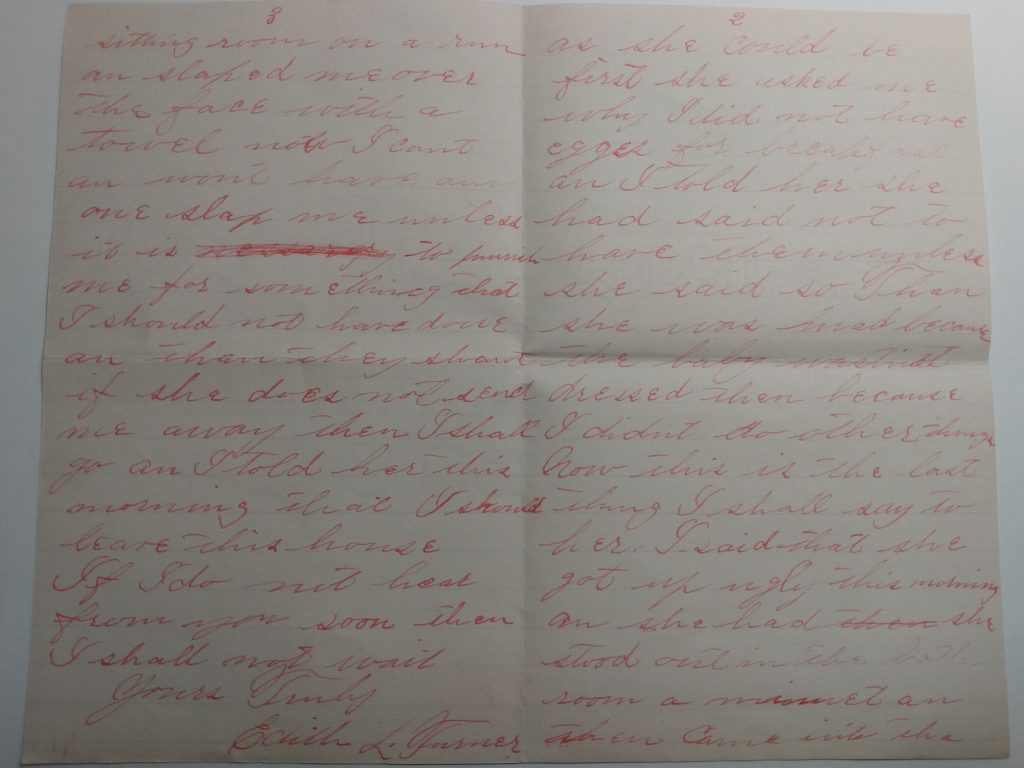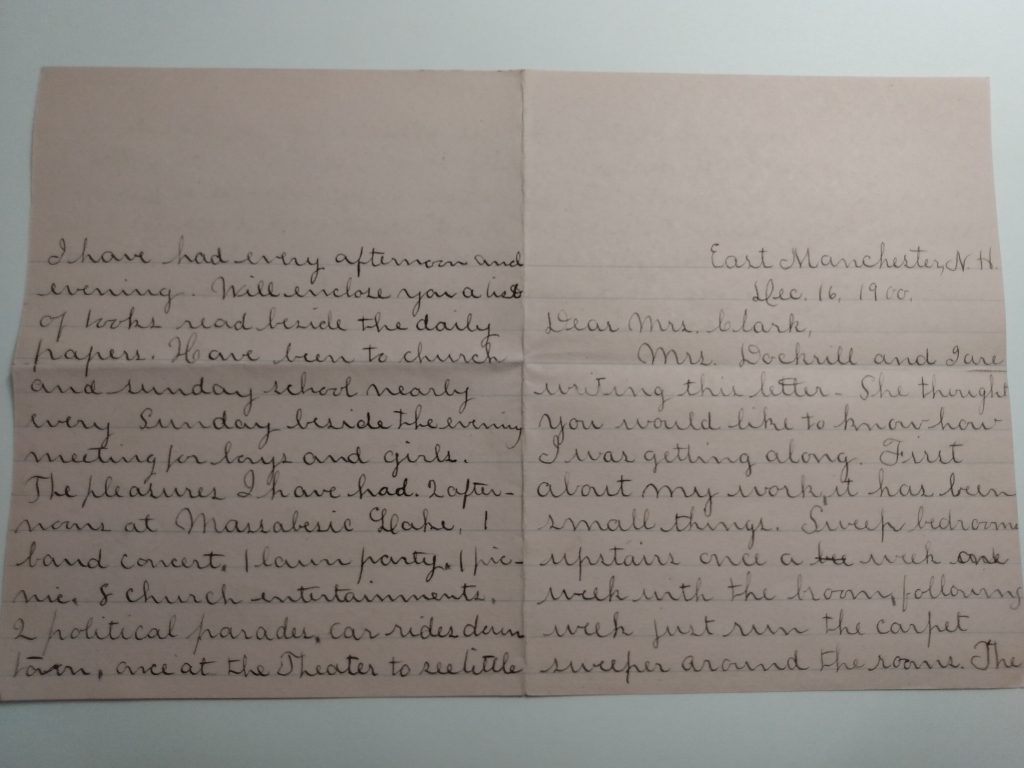by Susan Martin, Senior Processing Archivist
Since July, I’ve been introducing you to individual members of the remarkable Clarke family of Boston, whose papers I recently processed. Next up is Alice de Vermandois (Sohier) Clarke. Alice was the daughter of lawyer William Sohier and Susan Cabot (Lowell) Sohier. In 1878, she married Eliot Channing Clarke, the only son of Rev. James Freeman Clarke, which is how her papers came to be here at the MHS.
For this post, I’d like to focus on eleven folders of manuscripts in the Perry-Clarke additions documenting Alice’s work with the Boston Female Asylum.
Some sources refer to the Boston Female Asylum as an orphanage, but that isn’t strictly true; the asylum also accommodated girls with living parents who couldn’t support them. Bacon’s Dictionary of Boston (1886) has a good summary of the organization.
No. 1008 Washington Street. Established 1800; incorporated 1803. Receives destitute girls between three and ten, preference being given to orphans, though others are sometimes admitted; teaches them common-school branches, sewing, and domestic service; places them in families by indenture until 18, a few being always retained during their minority to serve in the asylum. Full surrender of a child is required on admission…
I was excited to see this material. Dating from 1894 to 1900, the papers consist primarily of correspondence between members of the asylum’s board of managers, including Alice; women in whose homes girls had been placed; superintendent Eliza J. Ross, who worked as a liaison for placements; and, most importantly, two of the girls themselves.
The managers really seemed to try to find the right placement for each girl. Alice’s notes mention some of them by name: for example, Leila Johnson was “small” and “easily led,” but a “good girl & worker.” Margaret Woodleigh was “very reliable,” but “cold distant no friends.” And Lizzie Alcott was “backward” and “cross at times” and needed a home with “(no men).”
I only have the space to discuss two individual stories very briefly, but I encourage you to come and look at the material yourself.
Edith Turner

Edith was living with the Hanscom family in Lawrence, Mass., but wrote to Alice begging for a new place: “Everything is quiet just now but only for a day or so an[d] then it will be war again so please get me away as soon as possible.” Sure enough, the following morning Edith and Mrs. Hanscom had an argument, and Hanscom slapped her. The desperate girl wrote to Alice again, saying “I cannot an[d] will not stand what I have to any more” and threatening to run away.
The collection also includes a letter from Winifred Hanscom with her side of the story. She didn’t deny what happened, but described it as “discipline.” She called Edith “high spirited and independant and […] saucey [sic].”
Edith was eventually placed with Abby F. Solberg of Melrose, Mass., an “intelligent rather artistic” woman with a physical disability and two young children. Superintendent Eliza Ross wrote, “Mrs. Hanscom [was] not very well pleased to part with [Edith]. I fancy she did a good deal of work.”
Grace Smith

Grace wasn’t happy, either. The 15-year-old was living with the Dockrill family in Manchester, N.H., where she was responsible for most of the housework, including sweeping, cleaning carpets, washing dishes, emptying slops, making beds, cleaning bathrooms, washing floors, etc. But Mrs. Dockrill said Grace was careless and lazy, and both of them wrote Alice asking for a change.
Carrie Dockrill was kinder to Grace than Hanscom had been to Edith. She said Grace had “good qualities” and thought she might enjoy placement at a farm because she loved the outdoors. Superintendent Ross called Grace “rather a peculiar and unbalanced girl,” but argued that of course “it is hard to change one’s nature wholly.”
Grace, for her part, promised “to turn over a new leaf and make something and somebody of myself.” After Mrs. Dockrill’s death a few months later, the girl was placed with a Mrs. Gould, also in Manchester. An undated note in the collection, in Alice’s handwriting, reads: “Grace Smith successful.”
I hope you’ll join me for my next post about the Perry-Clarke additions.

